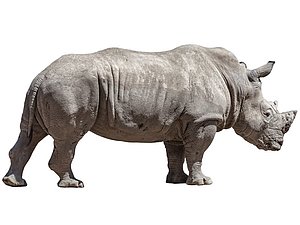Protected animal and plant species
Event description
CITES Convention

Trade in endangered plant and animal species protected by the international CITES Convention is subject to severe restrictions. Each protected animal, plant or product thereof must be accompanied by documents provided by CITES Convention, the EU and national regulations. These documents must accompany live or dead animals, plants, their parts and products thereof at import and export. The authority competent to issue such documents in Slovenia is the Slovenian Environment Agency.
Import and export permits for CITES subjects are not necessary in certain cases, as for example for goods in passenger traffic which are intended for personal or household use:
- caviar of sturgeon species (Acipenseriformes spp.) up to a maximum of 125 grams per person in containers individually marked according to provisions;
- rainsticks of Cactaceae (Cactaceae spp.) up to three per person;
- dead worked specimens of crocodiles (Crocodylia spp.) excluding meat and hunting trophies, up to four per person;
- shells of snails of the species Strombus gigas, up to three per person;
- sea horse (Hippocampus spp.) up to four dead specimens per person;
- giant shells (Tridacnidae spp.) up to three specimens per person not exceeding 3 kilos in total, where a specimen may be one intact shell or two matching halves;
- specimens of agarwood (Aquilaria spp. and Gyrinops spp.) - up to 1 kilo of woodchips, 24 ml of oil and two sets of beads or prayer beads (or two necklaces or bracelets) per person.
Measures taken by customs authorities
Customs authorities check whether consignments containing protected plant or animal species are accompanied by relevant permits at import in, export or re-export from the EU and transit across the customs territory of the EU. Items of protected animal or plant species which are not accompanied by the required permits, are confiscated by customs authorities who can initiate an offence or criminal procedure against the offender.

Did you know?
When passing through border-crossing points, travellers must declare to customs items of protected plant or animal species. At border-crossing points with two separate channels (red and green channels, e.g. at airports), travellers carrying such goods must go through the red channel (“Goods to declare”). When in doubt whether or not to declare the goods, it is recommended that travellers declare to customs all the goods they are carrying.




